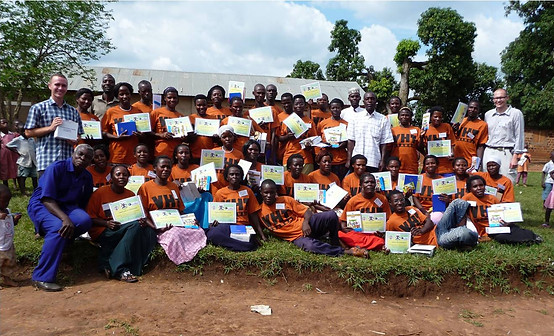
ABOUT US

A Message from our Founder:
I started Omni Med in 1998 after having seen the unnecessary suffering of those in sub-Sahara Africa, an experience that forever changed my life. I then found it difficult to find the right means to return to Africa years later, and thus began to develop an easier means for people to engage. I have since been joined by a committed core of health providers who share similar ideals.
Martin Luther King once said, “The racial problem in America will be solved to the degree that every American considers himself personally confronted with it.” We can extend a similar rationale to the problem of global health inequity, which will also be solved only to the degree that a critical mass of people—particularly those in the health professions—feel personally confronted with it.
In a world in which 28,000 children under age five die every day of treatable illness and over a billion live on less than $1 per day, we can and should find ways to bring better health and health care to those in greatest need. If you have ever been interested in serving, or would like to connect to the highest ideals of the health professions, then please contact Omni Med about serving in our Uganda program, or follow the clear directions in our two books: Awakening Hippocrates: A Primer on Health, Poverty, and Global Service; and A Practical Guide to Global Health Service. Omni Med’s work has evolved into the following:


Health Volunteerism: Omni Med has a program in Uganda that brings health professionals of all types, students (medical, public health, nursing, allied health), undergraduate students, and others with some or no prior international experience to short-term, effective teaching trips, rendering maximal impact for both volunteers and learners. We have run similar programs in Belize, Guyana, and Kenya. We work with the American Medical Association (AMA) to publish the above books on global health service that explore root causes of poverty, review pragmatic steps of health volunteerism, and encourage direct service through our large database of service opportunities.
Program Development: One of our program's core strengths is that we encourage our volunteers to bring their passion and innovation to our work. All of our programs are sustainable and fit within locally identified needs. Many of our current programs, from protected water sources, to VHT training and maintenance, and tablet usage, have come directly from the interactions of volunteers, our talented staff, and dedicated VHTs.
Our many research trials to date have benefited from our volunteers' considerable passion and dedication. Former Omni Med volunteers have developed programs elsewhere, including: a national cervical cancer screening initiative in Guyana; continuing medical education programs in Belize, Guyana, and Kenya; and an eye screening and treatment program in Thailand. Our volunteers' achievements include: Doris Duke Fellowship, Lazarus Scholarship, Primary Care Scholarship, Fogarty Fellowship, and acceptances to prestigious fellowships, medical schools, schools of public health, nursing, and others.
Ethical Leadership: The U.S. medical profession should engage global health inequality far more than it has. Since 1998, Omni Med has provided over 300 US health providers, residents, medical/ public health students and others with an opportunity to develop their own leadership skills as part of an overarching, moral vision to improve health for the poor. Through the transforming experience of direct service in poor countries, many people have engaged the problem directly in an ongoing fashion. Ultimately, we hope they and others who follow will exert their influence directly on others in the medical profession, and in the corridors of power in the United States.
Edward O'Neil Jr., M.D.



